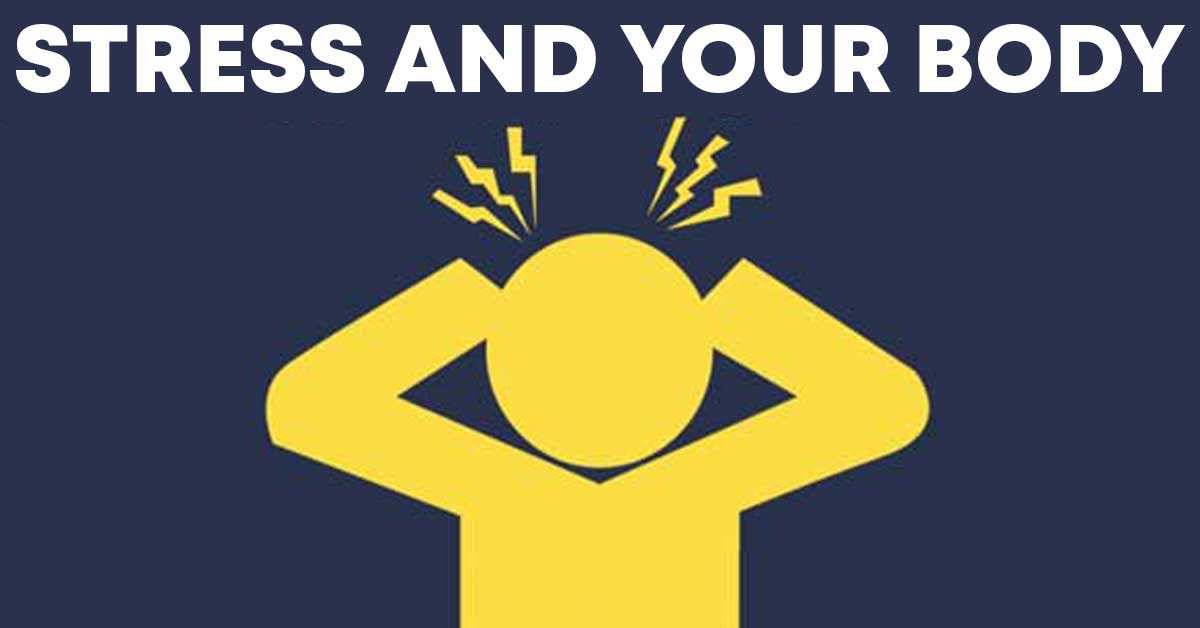We all strive to minimize stress in our lives. How we deal with stress varies from person to person as does the impact stress can have on our body. These symptoms of stress can sometimes appear even when we are not aware that we are stressed, according to the Mayo Clinic.
For your short term stress, your body releases more hormones thus increasing your heart and breathing rates. After this period prolonged stress can cause negative effects on your body that you may already be aware of.
American Heart Association reports these common symptoms of stress:
- digestive problems
- anxiety
- headaches
- depression
- sleep problems
- weight gain
- memory and concentration issues
- high blood pressure
- heart disease and stroke
These common symptoms range from annoying headaches to serious issues. All of these symptoms impact your day to day life and get in the way of achieving your goals at home, work or school.
Additionally, stress can impact aging. Stress is noted to shorten Telomeres in patients with high levels of stress. Telomeres are often used as a marker for both biological and cellular aging which in turn can lead to the conclusion that high levels of stress for prolonged periods can expedite someone’s aging.
To lessen these negative symptoms, here are a few ways to help decrease your stress levels:
- Start laughing – Read some jokes, watch something funny, but do something to take your mind off the issues that are causing you stress. Laughing is a common and easy solution to help relieve your stress.
- Make a list – Prioritizing what you need to do every day is a great way to understand your progress and keep your mind in order even as you may be worrying you are falling behind.
- Get some sleep – If you are not putting in at least 7 hours of sleep each night, you are not getting enough sleep! This likely will only compound the cranky attitude you have because of your stress.


